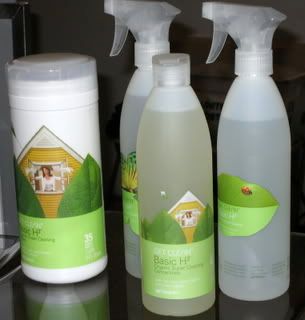Over the weekend I traveled to Phoenix to check out a business called
the Green Room which after opening a little over a year ago, has found a way to make the lives of others, greener. Tucked away off the street in Old Town Scottsdale, the Green Room offers interior plantscaping services conducive to both work and home environments to help alleviate stress or even better -- inspire creativity.
The philosphy of the Green Room is really to "create an inspiring place and bring nature into people's home," says Charlie Ray, the owner and founder of the business. And he doesn't need to tell you twice once you walk through the front door leading into the Green Room.
As soon as I entered, I could see plants of all shapes and sizes growing out of handmade glazed pots that were scattered throughout the store, on shelves, tabletops, and counters. Smaller plants, as well as dried out bulbs and roots hung from the ceiling, while larger plants in sturdy clay pots dotted the floor. The entire room was flooded with natural sunlight entering the room from every angle, and along the back wall hung a series of canvases with that displayed abstract paintings done by local artist James Sanders, for inspiration.
The room I walked into was in every way, green. Decor with an organic feel and knick-knacks for the sake of decoration made from the raw materials of old plants were scattered across tables throughout the store. And with plants filling every corner still leaving plenty of room to move comfortably around, it was easy to both see and experience how plants contributed a therapeutic vibe to their surroundings.
But in my mind, it wasn't what I would have imagined as a "green" way of living. When I asked Charlie how he thought his business was tied to the way people are living greener, thinking green meant organic foods and saving energy, he explained how the word itself, has more meaning than ever before:
"Green is such a hot word now whether it's construction or design or plants."
For the Green Room, living greener means living with plants. And with his goal to inspire others with plants, it's obvious Charlie feels that plants are more than part of a room's decor and have plenty to offer. They have value and can contribute to a more positive atmosphere. What he wants to share with others through his business is the therapuetic aspect plants can bring to any environment.
(You can take a quick look for yourself on the contributing effects of plants...
HERE)
"Plants can really change the space... it makes it so inviting and inspiring to me and i just look at these plants as artwork. I've always thought of them as living sculptures."
Integrating plants might not be the first thing that comes to mind when people decide to go green with their lifestyle. But Charlie's business and belief of what plants can offer shows that being green doesn't necessarily mean eating only organic foods, or using every type of energy-saving houseware that's been invented. You could simply start living green by buying a plant and putting it in your home. It seems logical actually, to become in touch with nature and understand its meaning before taking bigger steps to preserve it. It might just be another passing trend if you've never owned a plant to understand what nature can offer. And it seems it could be more than just a splash of green.
 I recently purchased a lipgloss by Alba, a bodycare line that is both pure and environmentally-conscious, from my local Walgreens. I had never seen their products before, though recently the all-natural brand went from being sold primarily at Whole Foods and specialty markets to Walgreens, making it more accessible to the general consumer who might not know much about eco-friendly beauty.
I recently purchased a lipgloss by Alba, a bodycare line that is both pure and environmentally-conscious, from my local Walgreens. I had never seen their products before, though recently the all-natural brand went from being sold primarily at Whole Foods and specialty markets to Walgreens, making it more accessible to the general consumer who might not know much about eco-friendly beauty. 










